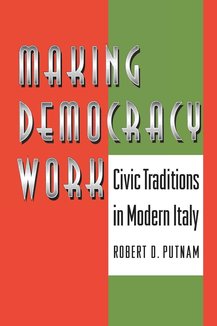Recommended Books

Democracy in America
Authors:
Alexis de Tocqueville
,
Harvey C. Mansfield
,
Delba Winthrop
ISBN 13:
978-0226805368
The most faithful and nuanced translation of the definitive work for understanding America Alexis de Tocqueville (1805-59) came to America in 1831 to see what a great republic was like. What struck him most was the country's equality of conditions, its democracy . The book he wrote on his return to France, Democracy in America , is both the best ever written on democracy and the best ever written on America. It remains the most often quoted book about the United States, not only because it has something to interest and please everyone, but also because it has something to teach everyone. When it was published in 2000, Harvey Mansfield and Delba Winthrop's new translation of Democracy in America —only the third since the original two-volume work was published in 1835 and 1840—was lauded in all quarters as the finest and most definitive edition of Tocqueville's classic thus far. Mansfield and Winthrop have restored the nuances of Tocqueville's language, with the expressed goal "to convey Tocqueville's thought as he held it rather than to restate it in comparable terms of today." The result is a translation with minimal interpretation, but with impeccable annotations of unfamiliar references and a masterful introduction placing the work and its author in the broader contexts of political philosophy and statesmanship.

Deciding what's news: A study of CBS evening news, NBC nightly news, Newsweek, and Time
Author:
Herbert J. Gans
ISBN 13:
978-0394503592
For ten years, Gans spent considerable time in four major television and magazine newsrooms, observing and talking to the journalists who choose most of the news stories that inform America about itself. He was interested in their values, professional standards, and the external pressures that shaped their judgments. This fascinating study of the unwritten rules of American journalism provides rare insight into how our society words and how our perceptions of it are formed.

Exit, Voice, and Loyalty: Responses to Decline in Firms, Organizations, and States
Author:
Albert O. Hirschman
ISBN 13:
978-0674276604
An innovator in contemporary thought on economic and political development looks here at decline rather than growth. Albert O. Hirschman makes a basic distinction between alternative ways of reacting to deterioration in business firms and, in general, to dissatisfaction with organizations: one, “exit,” is for the member to quit the organization or for the customer to switch to the competing product, and the other, “voice,” is for members or customers to agitate and exert influence for change “from within.” The efficiency of the competitive mechanism, with its total reliance on exit, is questioned for certain important situations. As exit often undercuts voice while being unable to counteract decline, loyalty is seen in the function of retarding exit and of permitting voice to play its proper role. The interplay of the three concepts turns out to illuminate a wide range of economic, social, and political phenomena. As the author states in the preface, “having found my own unifying way of looking at issues as diverse as competition and the two-party system, divorce and the American character, black power and the failure of ‘unhappy’ top officials to resign over Vietnam, I decided to let myself go a little.”

Making Democracy Work: Civic Traditions in Modern Italy
Authors:
Robert D. Putnam
,
Robert Leonardi
,
Raffaella Y. Nanetti
ISBN 13:
978-0691037387
"A classic." —New York Times "Seminal, epochal, path-breaking . . . a Democracy in America for our times."— The Nation From the bestselling author of Bowling Alone , a landmark account of the secret of successful democracies Why do some democratic governments succeed and others fail? In a book that has received attention from policymakers and civic activists in America and around the world, acclaimed political scientist and bestselling author Robert Putnam and his collaborators offer empirical evidence for the importance of "civic community" in developing successful institutions. Their focus is on a unique experiment begun in 1970, when Italy created new governments for each of its regions. After spending two decades analyzing the efficacy of these governments in such fields as agriculture, housing, and healthcare, they reveal patterns of associationism, trust, and cooperation that facilitate good governance and economic prosperity. The result is a landmark book filled with crucial insights about how to make democracy work.